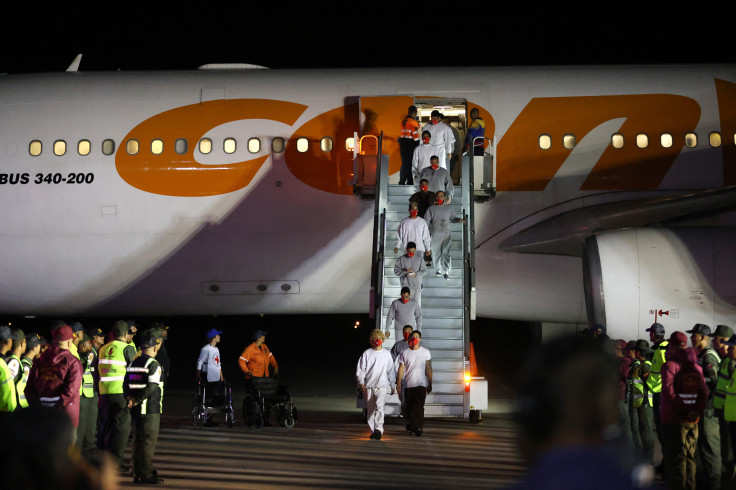
Cubans, Venezuelans and Haitians are among the nationals from 12 countries impacted by President Donald Trump's most recent travel bans. The latter country is facing a full visa suspension, while the former two will be subject to a partial ban once the measure goes into effect on June 9.
The Trump administration justified its decision by claiming that Haiti's designation is a result of high visa overstay rates and the fact that its transitional government, marked by instability and the advance of gangs on most of the country's capital, is unable of vetting potential security threats. All visas from nationals as immigrants and non-immigrants will be suspended, barring some exemptions.
Cuba's inclusion, in turn, follows its designation as a state sponsor of terrorism and what the administration describes as refusal to cooperate on law enforcement matters and the repatriation of deportees.
As for Venezuela, the administration noted a lack of competent central authority for issuing passports or civil documents and insufficient vetting and screening measures as well. The White House also claimed that the country "has historically refused to accept back its removable nationals." It also cited a B1/B2 visa overstay rate of almost 10%.
The Miami Herald explained that, nonetheless, there are some exceptions for both categories, noting that the proclamation doesn't affect people who already have valid visas, as well as green card holders, some dual nationals, adoption visas, immediate relatives of U.S. citizens and diplomatic personnel.
The proclamation is the latest measure aimed at preventing nationals from these countries from being in the United States. In May, the administration got a favorable ruling allowing it to strip the legal status of over half a million people who got it during when former President Joe Biden led the White House.
The program, known as humanitarian parole or CHNV, benefited citizens of Cuba, Haiti, Nicaragua and Venezuela, allowing them to temporarily live and work in the U.S. if they passed a security check and had a sponsor who could provide them with housing.
The high court also recently allowed the administration to terminate the Temporary Protected Status for hundreds of thousands of Venezuelans across the country, making them eligible for deportation.
The court's order directly affects some 350,000 Venezuelans who were granted protections in 2023 during the Biden administration due to the political, economic and humanitarian crises ravaging their home country. The former president then extended these protections in January, allowing them to retain their legal status until October 2026.
TPS offers deportation relief and work authorization to migrants from countries facing war, disaster, or extraordinary conditions. The Biden administration granted TPS to Venezuelans in 2021, citing repression, humanitarian collapse, and civil unrest under President Nicolás Maduro. The Trump administration has argued that those conditions no longer justify continued protections, an argument rejected by Venezuelans and even some Republican lawmakers representing constituencies with large Venezuelan communities.
© 2025 Latin Times. All rights reserved. Do not reproduce without permission.





